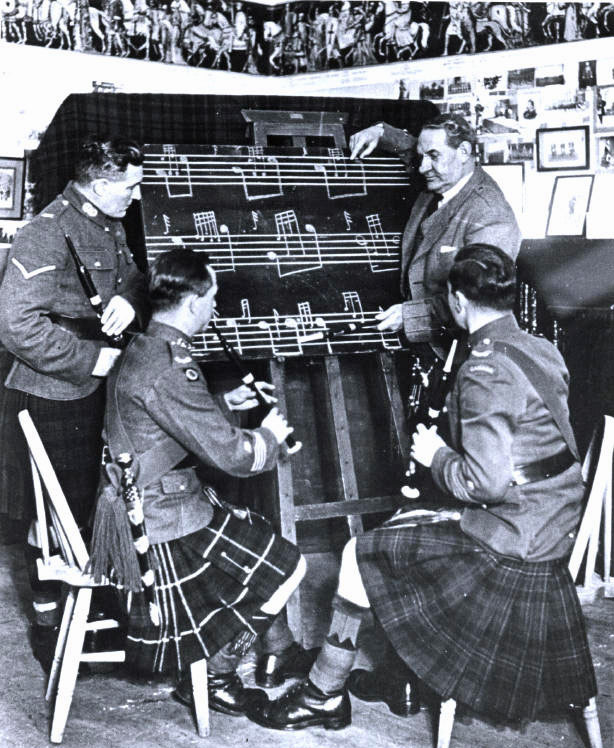From the archives: a 1988 editorial warning for organized teaching in Ontario
When looking through our files of work that spans more than three decades, we came across the following editorial from 1988. It’s an interesting snapshot in time.

The opinion piece was published only a year after the World Pipe Band Championship had been won by an Ontario-based band. Several of the world’s winningest solo pipers were from the province. While things appeared to be going great, sustaining such leadership needs constant care and nurturing.
The future of piping and drumming in Ontario depends solely on its current potential developing talent. For the most part Ontario’s developed talent is at an all-time high. Top international awards are finding their way across the Atlantic with rewarding regularity.
The mammoth teaching efforts of people like John Wilson and George Duncan in the 1950 and 1960s, the interest spawned by the Intercontinental Gathering at the Canadian National Exhibition in the 1970s and innumerable trips to Ontario by Scottish masters have all helped to make southwestern Ontario a piping hotbed. Coupled with the organizing efforts of the Pipers & Pipe Band Society of Ontario, these events have made Ontario a centre of influence in the piping and pipe band world. But for how long?
Consider, for a moment, these points:
- In 1977 there were 11 Grade 1 bands competing at Maxville. In 1987 there were six.
- In 1979 Ontario supported no less than four piping and drumming summer schools. Timmins stands alone in 1988.
- Amateur night 1988 (piping and drumming) at the Toronto Branch of the PPBSO featured two pipers and one drummer. The 1977 Grade 4 March contest had 15 competitors.
- Membership in the PPBSO has reportedly dropped an estimated 20% since 1980.
The list can easily be lengthened. There’s no need. Clearly, the number of non-playing enthusiasts, drummers and pipers getting involved (and staying involved) with the PPBSO is dwindling. There is a problem somewhere and it must be addressed.
A framework is need in which to develop new members; people keen to learn the pipes or drum. The PPBSO desperately needs a school. Instead of supporting a stagnant system where a few players shuffle from one band to the next we must nurture new pipers, new drummers.
The overwhelming majority of those who learn our instrument do so in a pipe band setting. Tuition is directed towards pipe band playing. If a piper is involved he seldom comes close to discovering piobaireachd. Drummers, while enjoying the considerable advantage of playing an instrument that is universally accepted as a music maker rarely tap the many musical resources available outside the corps.
An environment must be created where pipers and drummers have a choice. Experienced players must be willing to teach. Only through an organized system of qualified instruction will our present high standards be maintained.
Thirty-one years later, we ask, what has happened? While many of the same questions and calls were repeated, were they ever heard? How have things changed?
Some regions have embraced organized teaching programs, mostly through pipe band organizations, while others have not. Hardly any associations worldwide run an organized school of piping and drumming. What’s the situation today in your region?
Your comments are welcomed.

NO COMMENTS YET